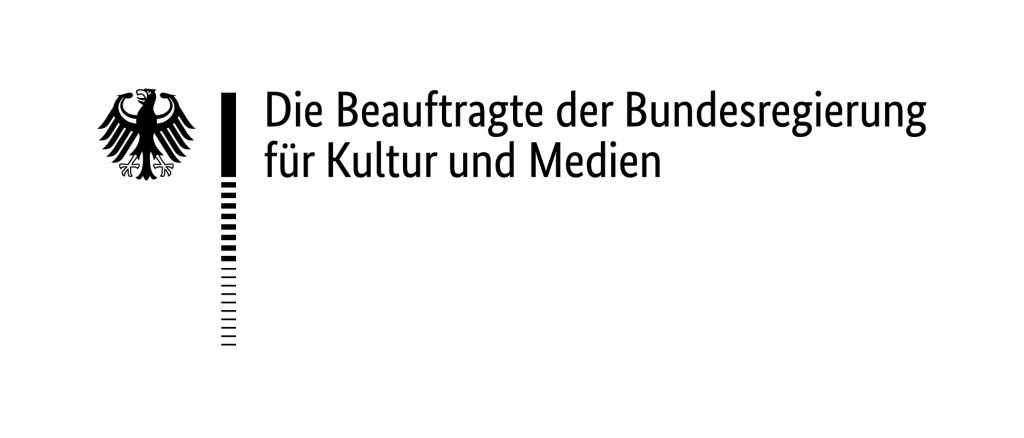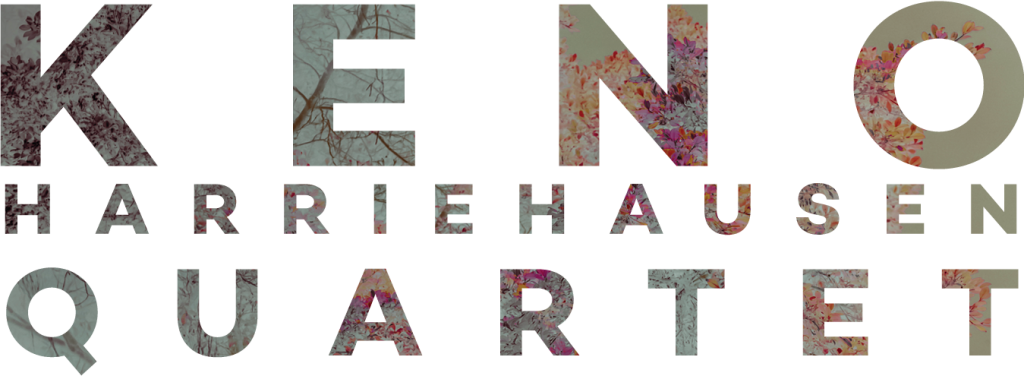Karlis Auzins (LV) – Saxophone
Maya Fridman (NL) – Violoncello
Andris Meinig (DE) – Double Bass
Keno Harriehausen (DE) – Piano & Composition
„Music with a tremendous pull… Richly colored and innovative Jazz with excursions to Shostakovich, Reger and Ravel.“
„Idioms (…) successfully intermarried in Keno Harriehausen Quartet, a new proposition in the often-tricky bridging of chamber jazz. … pieces with echoes of contemporary music and sound palettes from the first half of the 20th century… Margin for improvisation is an important, and jazz-linked, aspect for a group of excellent musicians…“
– Downbeat, Josef Woodard (US)
„… he is in thrall to the intensely magical and harmonically kaleidoscopic world of Ravel…It is impossible not to be struck by the international nature of this quartet … Open-mindedness, open-heartedness are everything in the way this quartet chooses to make its music…“
– LondonJazz News,
Sebastian Scotney (UK)
What is an ensemble? A group of individuals in which every voice is being carved out as clearly as possible to make the individual performance as audible as possible? Or is it the opposite: a firm body of musicians, like a symphony orchestra, creating a collective sound in which that sum of individual performances merges into one? The truth doesn’t lie in the middle – as it does so often – but fully embraces both aspects in their entireness. The Keno Harriehausen Quartet is a highly vivid example for an ensemble in which multifacetedness of the sum of the individual voices and the unity of the inseparable whole works at its best.
Pianist Keno Harriehausen, saxophonist Karlis Auzins, cellist Maya Fridman and bassist Andris Meinig don’t beat around the bush. From the first note, they make it clear what it’s all about. Subtle vehemence pairs with insistent clarity. This music grabs you with each tone, each breath, each movement. It doesn’t stay out, doesn’t remain neutral, won’t accept the background. Keno Harriehausen and his fellow musicians from Germany, Latvia and the Netherlands take the freedom to absorb the listener to the fullest.
The lineup in itself marks already the unusualness of the band. The combination of tenor saxophone, cello, double bass and piano would rather make you think of a modern chamber ensemble than a Jazz band. But pianist and composer Keno Harriehausen isn’t interested in typical jazz formats anyways. More than 60 years ago, American composer, conductor and music theorist Gunter Schuller demanded for the so called third stream in his thesis. The combination of classical music and jazz should be neither Jazz with classical music nor classical music with jazz but an independent music that frees itself from common reflexes. What Schuller failed on a high level can be found fulfilled in Harriehausens music in a nearly magical way. The music is in some moments reminiscent of Shostakovich, Reger and Ravel, but also of American Free Jazz and Scandinavian searching of tonal colors. Yet, all these references loose themselves in the decisiveness of the performance and in the compelling responsibility to every single tone.
Harriehausen made a long journey to get to this point. He lived in Amsterdam, Trondheim and Copenhagen and experimented everywhere with timbres, structures and interpreting. The formation of his quartet changed several times. Initially, instead of the cellist, a drummer was part of the ensemble. „We hit it off right away and didn’t even question what we were doing.“ Harriehausen remembers. „Yet with the melodies I always had the feeling there would be a better way to express the classical european aspect of the music. The cello was the perfect instrument for me, since it has these dramatic and heavy qualities.“
What Harriehausen has sowed over many years in northern Europe now sprouts from Leipzig. It may be due to the nordic influences that Harriehausen’s compositions seem to appear like landscapes molded into sound. These imaginary landscapes don’t just stretch in front of the associating eye but the focus also moves inward. „Appart from temporary trends this perspective is essential for me“ says Harriehausen. „It’s about being in contact with myself. My goal is to create music that allows the listener to find a deeper perception of the moment.“
Harriehausen does not stop with the creation of the music. He intensively reflects its effect, the parley of introspect and outward levels of perception and the role of his music in society. Composition and improvisation, structure and freedom, individual and group stand in very distinctive relationships to one another. A cosmos of limitless possibilities arises from the coordinates. The palette of constellation of sound that unfolds from the instrumentation of Piano, Saxophone, Cello and Bass is sheerly overwhelming. By his own account, the biggest challenge for the bandleader, composer and pianist is to fill this space without getting lost in it. He is not searching for the best compromise, but goes into the extreme of unifying the opposites. „We have found a sort of storytelling that follows its own rules in the freer parts. You need the right flow to get it out and to the people. It about letting the energy out, not directing the form towards it.“
There have been so many things said about the relationship between composition and improvisation that it almost sounds like a platitude when you acknowledge the quartet for every improvisation being a spontaneous composition at the same time. What separates the approach of the Keno Harriehausen Quartet from similar endeavors is the extrem awareness in every moment of the collective performance. Each of the four members always sense intuitively where they are and what role they play in the flexible whole. Also in more free parts they never improvise into nowhere. The four musicians don’t just know exactly where they want to arrive, but also that they will arrive there. They stay very clear within the music and don’t let external concepts distract them. As high as the degree of complexity may become, everything follows a very natural logic.
„We have a very similar notion of improvisation. As musicians we have very different backgrounds but we all throw ourselves with all our vulnerability into the context. There may be question marks on the way but the exclamation marks come from the drive to give it everything.“
After his long journey through Europe Keno Harriehausen has achieved to create an independent, completely new and in many parts unheard musical world which doesn’t cut itself off reality but grabs the painful yet exhilarating intensity of life with eight hands. Or to say it in his own words: „To me it’s indispensable to consider what one can give to others.“
⁃ Wolf Kampmann
Jazznyt, Niels Overgård (DK)
„ …(An) expressive foray for German jazz … dramatic – almost cinematic jazz with a nod to classical music and subtle free jazz.“
Deutschlandfunk Kultur, Matthias Wegner
*DLF Jazz Debut of the year*
„The music sparks of magic and draws you in like a strong current… with their Debut they have already achieved a little masterpiece“
Chris Joris (BE) (Jury MJC,)
„An encounter of cinematic minimalism, melody and and gentle but confident anarchy: a beautiful balance between fragility and strength.“
LVZ, U. Steinmetzger
Soundscapes (…) where moments rich in color and of touching beauty emerge… It is as if the musicians would serve their souls on a silver platter. This music is world-encompassing and unhermetic. Hereout, they develop their unique characteristic.”
Draai Om Je Oren (NL)
„It sparkles from beginning to end in a dynamic, versatile program.“
Jazzpodium, D. A. Ott
„It appears that nowadays a loud and fast present needs to be faced by quiet tones to make silence audible again, to demand thoughtfulness and consideration.”
Donos kulturalny, Krzysztof Komorek (PL)
„It is precisely the interweaving of jazz and classical music that characterizes the music of the quartet… On the one hand the musical inspirations (…) reach from the works of Shostakovich and Ravel and on the other hand, they are directed towards free music and the characteristic colors of Scandinavian jazz… Immersing into the blissful contemplation of the beautiful musical landscapes of the quartet.“
Nils Landgren
„Here you feel that certain something, a human and musical understanding emerges which is truly about the music. Really great music by really great musicians.“
BR, B. Jugel
„A remarkable bridging between Jazz and Classical music. (…) a musical understanding where the group sound always marks the focal point, even in improvised passages. Although the gesture of Jazz resonates in it, you clearly hear the rootedness of the quartet’s music in European Classical music.“
NDR Info, F. Tenbaum
„The native of Hamburg (Keno Harriehausen) is a crosser between musical worlds… he has developed a tremendous musical voice… When he sits down at the grand piano and improvises he knows only two things: all or nothing.“
Hifi & Records, H. Grünefeld
„ … vibrates by inner motion – resonances of the soul, outwardly.“
Gefördert von:


